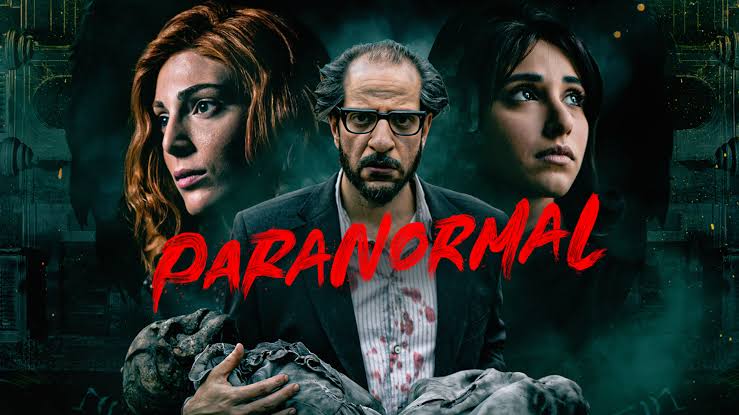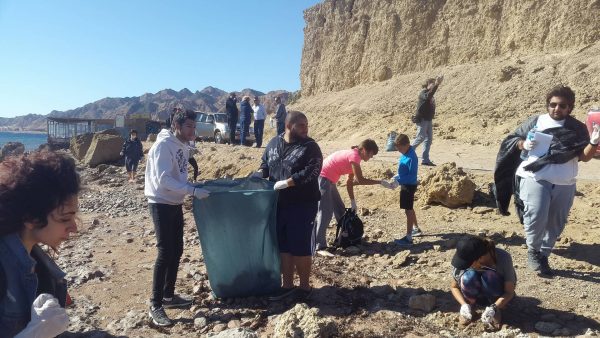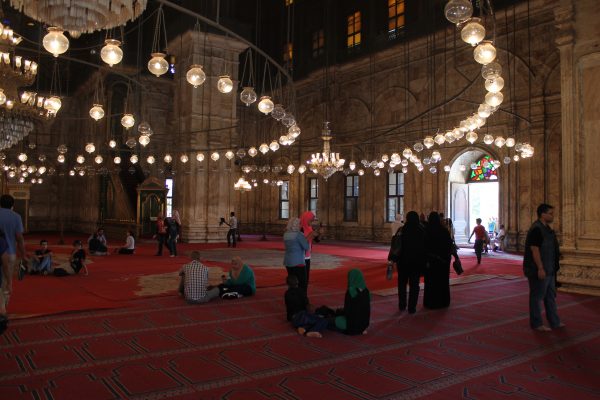Paranormal: The First Egyptian Netflix Original
By: Mostafa El Meteni
@MossMeteni
Photo: Paranormal official poster
Debuting last month, TV adaptation of 90s horror book series “Paranormal” becomes the first Egyptian Netflix original series to make it on the list of top-rated TV shows in history on IMDB.
Associate Professor of the Journalism and Mass Communications department Ronnie Close said that the series is one of the best on Netflix.
“Netflix are powerful players in the film media industry and are likely to challenge Hollywood studios in the future. The success of Paranormal will enable other Egyptian production studios to get commissions and open up a local, regional and global audience,” Close told The Caravan.
Written by Egyptian Author and Physician Ahmed Khaled Tawfik, the series is set in the 1960s. It follows the adventures of Refaat Ismael, a hematologist (a person who studies the science of blood) as dangerous paranormal experiences challenge his beliefs. Ismael is played by Egyptian actor Ahmed Amin.
Ismail ends up investigating these life-threatening incidents with the help of one of his former colleagues, Maggie, played by Lebanese actress Razanne Jammal.
The casting of actors in the series has also been praised by viewers, with people commenting on how the team managed to pick great actors for each role.
“Salama’s directing and cinematography are great, and the score is really good and sets the scenes perfectly, but the true revelation is Amin’s acting, he really delivered a phenomenal performance,” Yahia El Kahky, graduate Film student from Alexandria University, wrote on Facebook.
The series’ crew stated in an interview with Egypt Independent that the cast had to be tailored for the role, not just picking the big names in the industry.
Among the actors who stood out were Amin and Jammal. Amin usually plays comedic roles; therefore, the depressed professor role was new to him but he mastered it while Jammal perfected the accent as well as showed exquisite acting skills.
Ahmed Beshary, the director of photography, also said in that interview that they wanted the cinematography to be different from other thriller movies in Egypt, seeing as the genre is still somewhat new to the country.
In an interview with NileFM, Egyptian Director Amr Salama said that Netflix chose to produce this series in an effort to expand their productions in the Arab world and draw more audiences to their platform.
According to C-Town Chatter, an Egyptian magazine, the series created buzz on Egyptian social media platforms with its cinematography and exceptional acting.
Before the debut of the pilot, Salama recommended a few tips on his official Facebook account on how to best enjoy the series while watching it.
“Avoid watching the series on pirated websites … watch it on a big screen, and focus on the sound effects and their quality,” Salama wrote.
Assistant Professor Samuel Cooper at AUC’s English and Comparative Literature department compared the series to similar American sci-fi series.
“It reminds me a bit of the classic American sci-fi show the X-Files, but there the paranormal element always remains somewhat in question, allowing room for skepticism, in these Egyptian narratives there is ultimately an insistence that the paranormal is real,” Cooper told The Caravan.
Cooper also wondered how the difference in narratives between Western or American cinema versus Egyptian cinema relates to the enduring vitality of religious belief in Egyptian society.
However, not all feedback was positive. According to AUC Film sophomore Malek Nader, the series lacked character development and connections.
“It was not what I expected from a Netflix series or an Egyptian one with a high budget. I was very disappointed with the result that I have watched,” Said Nader.
A lot of the audience also noticed a few mistakes in the series, such as the wrong use of dialect for the 1960s, as well as glitches and poor quality of graphics at times.
“Visual effects were used flawlessly in some scenes, but in others, they were unrealistic and didn’t make sense. They put a gorilla in Lybia’s desert in an adventurous episode,” Nader told The Caravan.



